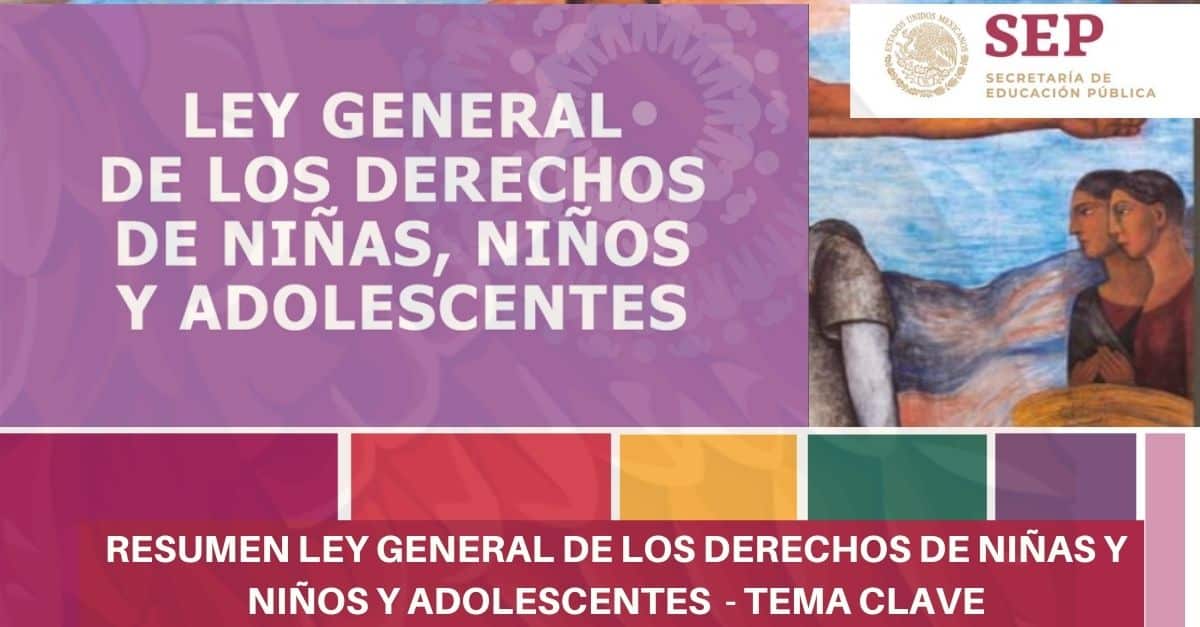Protecting Young Lives: Understanding Mexico's General Law of the Rights of Children
Ever wonder how a country safeguards its youngest citizens? Mexico’s answer is the General Law of the Rights of Children and Adolescents, often called the Ley General de los Derechos de Niñas, Niños y Adolescentes. This crucial piece of legislation is a cornerstone of child protection, aiming to ensure that every child in Mexico can thrive.
This law, deeply rooted in international human rights conventions, represents a significant step towards guaranteeing children’s well-being. From education and healthcare to protection from violence and exploitation, the law covers a wide spectrum of rights essential for a child’s development. But how effective is it in practice? Let’s dive deeper into understanding the complexities and impact of this crucial law.
The Ley General de los Derechos de Niñas, Niños y Adolescentes emerged from the recognition that children deserve specialized legal protection. It acknowledges that children are not just miniature adults; they have unique needs and vulnerabilities requiring specific considerations. This law emphasizes the child's evolving capacities and their right to participate in decisions that affect their lives.
The history of children's rights legislation in Mexico is a journey marked by progress and ongoing challenges. The current law, enacted in 2014, builds upon previous efforts and incorporates international standards, reflecting a global movement to prioritize children's well-being. Understanding its origins provides valuable context for appreciating the significance of this legislation in the Mexican legal landscape.
The importance of the Ley General de los Derechos de Niñas, Niños y Adolescentes cannot be overstated. It provides a framework for government action, establishes mechanisms for monitoring children's rights, and empowers children and adolescents to advocate for themselves. The law also addresses critical issues like child labor, child trafficking, and access to justice for children.
One key aspect of the law is its focus on the principle of the "best interests of the child." This principle mandates that all decisions concerning children, whether by public authorities or private institutions, must prioritize the child's well-being above all else. For example, in custody disputes, the court must consider what arrangement will best serve the child's emotional and physical development.
The law outlines various rights, including the right to a name and nationality, the right to live with their family, the right to education, the right to healthcare, and the right to protection from all forms of violence. It also emphasizes the importance of children's participation in matters that affect them, encouraging their voices to be heard.
Among the benefits of the law are improved access to education and healthcare, strengthened mechanisms for child protection, and greater awareness of children’s rights among the public. It has also led to the creation of specialized institutions dedicated to protecting children and promoting their rights.
However, implementing the law has faced challenges, including limited resources, bureaucratic hurdles, and societal attitudes that sometimes undermine children's rights. Overcoming these obstacles requires sustained commitment from government, civil society organizations, and individuals.
Advantages and Disadvantages of the Law
| Advantages | Disadvantages |
|---|---|
| Provides a comprehensive framework for child protection | Implementation challenges due to limited resources |
| Empowers children and adolescents to exercise their rights | Varying levels of enforcement across different regions |
| Promotes inter-agency collaboration for child welfare | Need for greater public awareness and understanding of the law |
Frequently Asked Questions:
1. What is the age of majority in Mexico under this law? Answer: 18 years old.
2. Does the law address the rights of children with disabilities? Answer: Yes, it specifically addresses the rights of children with disabilities.
3. How does the law address child labor? Answer: It prohibits child labor and establishes penalties for violators.
4. What are the reporting mechanisms for child abuse under this law? Answer: The law outlines various reporting mechanisms, including hotlines and online platforms.
5. How does the law protect children in migration situations? Answer: It provides specific protections for migrant children, ensuring their access to basic services and legal assistance.
6. What role do families play under this law? Answer: Families are recognized as the primary caregivers and are responsible for ensuring children's well-being.
7. Does the law address the issue of child marriage? Answer: Yes, the law prohibits child marriage.
8. How is the law enforced? Answer: Enforcement is carried out by various government agencies, including child protection services and the judicial system.
In conclusion, the Ley General de los Derechos de Niñas, Niños y Adolescentes is a landmark achievement in the pursuit of children's rights in Mexico. While challenges remain in its implementation, the law represents a significant step towards creating a society where every child can thrive. Continued efforts to raise awareness, strengthen enforcement mechanisms, and address societal attitudes are crucial to fully realizing the law’s potential and ensuring that all children in Mexico enjoy the rights and protections they deserve. Let’s all work together to build a brighter future for Mexico’s children, one where their rights are respected, protected, and fulfilled. This law is not just a legal document; it’s a promise to the next generation, a commitment to their well-being, and a foundation for a more just and equitable society.
Unleash your inner icon nike superfly mercurial cr7 cleats
The impact of callie torres on greys anatomy
Digital decorum what are some online rules of netiquette


/arc-anglerfish-arc2-prod-abccolor.s3.amazonaws.com/public/W5DQEEJWUVH7JIQTOWXSCYYO7M.jpg)











